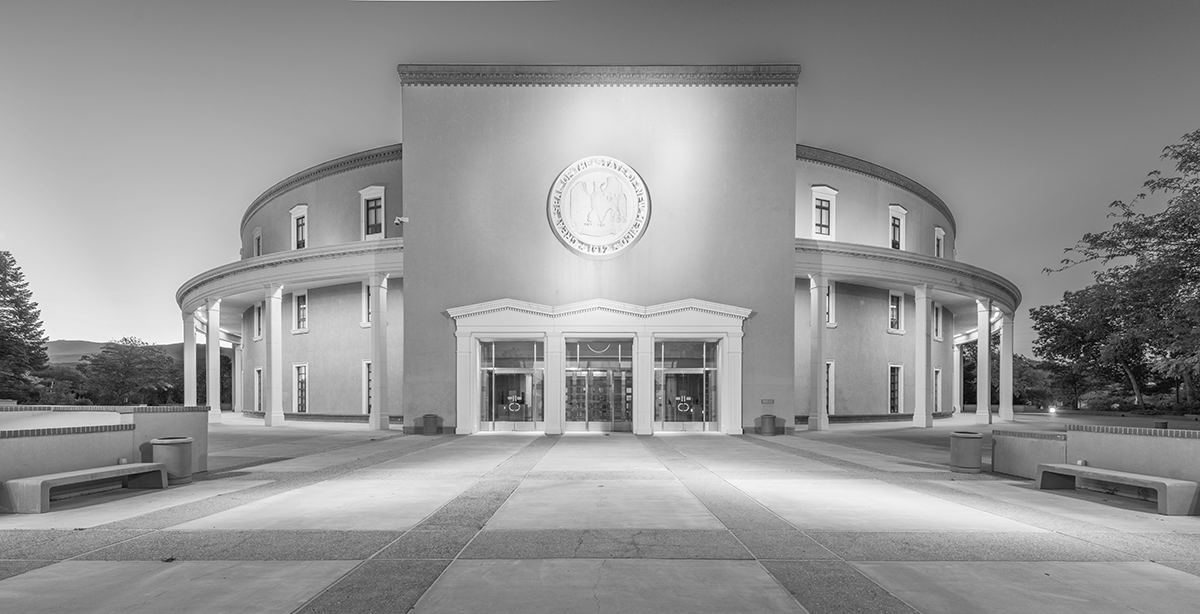During New Mexico’s 60-day legislative session, which ran from January 21 to March 22, the legislature introduced 1,182 bills. Close to 200 of these measures were enacted into law with the Governor’s signature. Many impactful bills received bipartisan support. Despite the strong democratic majority in both chambers, the legislative session can be characterized by the battle between Governor Michelle Lujan Grisham (D) and the legislature.
Governor Lujan Grisham delivered her State of the State address on the first day of the legislative session, highlighting key issue areas for policy change. The governor’s priorities included addressing public safety, housing and homelessness, climate and energy, healthcare, behavioral health and child well-being, and education. In another public address early into the session, the governor again cited the session as an opportunity to bolster public safety, calling on the legislature to take decisive action. On February 27, Governor Lujan Grisham signed a number of comprehensive bills into law related to her priorities, including HB 8, a public safety omnibus measure that addressed criminal competency reform, weapon conversion devices, shooting threats, fentanyl trafficking, auto theft penalties, and DWI blood testing and SB 1, which establishes a dedicated trust fund to provide sustainable, long-term financing for behavioral health programs across the state. Upon enacting these measures, Governor Lujan Grisham reiterated that the work in this area was not done and urged for further action. She further emphasized her desire to pass more public safety legislation after a mass shooting in Las Cruces on the eve of the legislature’s adjournment. Both the governor and Republican leadership have already expressed the need for a special session.
What Passed?
Behavioral Health and Healthcare
Healthcare reform was another issue area that the governor and Republican leadership believed was not adequately addressed during the legislative session. However, quite a few impactful measures were passed, some with bipartisan support. SB 219, the “Medical Psilocybin Act” made New Mexico the third state to legalize access to psilocybin. The bill allows for the use of psilocybin in the treatment of major depressive disorder, post-traumatic stress disorder, substance use disorders, and end-of-life care. This measure creates the Medical Psilocybin Advisory Board in order to establish rules for licensing providers and requirements for psilocybin producers. SB 120 prohibits insurers that provide coverage for behavioral health services from imposing cost-sharing. HB 178 expands the scope of practice for nurses, streamlines the licensing process, and allows for multistate licenses. This measure received little opposition, as nursing staff shortages have been a challenge in New Mexico, according to the governor.
New Mexico also successfully became the third state to ban the use of intentionally added PFAS in consumer products through HB 212, the “PFAS Protection Act.” This measure will phase out the use of PFAS in a variety of products by instituting gradual statewide prohibitions on the sale, distribution, and distribution for sale of products containing intentionally added PFAS. By January 1, 2032, no product containing intentionally added PFAS shall be sold or distributed in New Mexico, unless a governing board determines its unavoidable use. PFAS, or “forever chemicals,” have been linked to a number of health challenges and have contaminated New Mexico waters. New Mexico Environment Department Secretary James Kenney stated that as climate change reduces how much water the state has, limiting pollution will be even more important.
Energy and Environment
Also in line with Governor Lujan Grisham’s priorities were the efforts to pass bills that promote clean energy and environmental protection. HB 93, relating to advanced grid technology, was amended in the Senate to include a provision stating that all energy generated via a microgrid must be from net-zero carbon resources by 2045. Another environmentally-focused House bill that made it to the finish line is HB 137, creating a Strategic Water Supply Program in New Mexico to address water scarcity by reducing reliance on freshwater sources, expanding water reuse and conservation efforts, and funding innovative water supply projects. SB 21 further protects water by requiring the Water Quality Control Commission to adopt rules regarding discharges of dredged or fill materials, remediation of water pollution and contamination in soil and soil vapor, and the use of treated domestic wastewater for potable reuse.
Looking ahead
Lawmakers on both sides and the governor are in favor of a special session. Democratic leadership has urged Governor Lujan Grisham to allow for an active interim of study prior to calling the special session to order. Republican leadership sent the governor a letter requesting an immediate special session to focus on crime and healthcare. A date has not yet been set.
